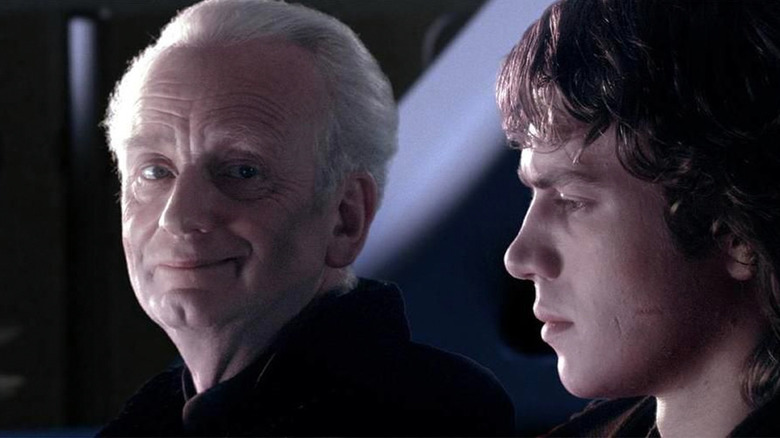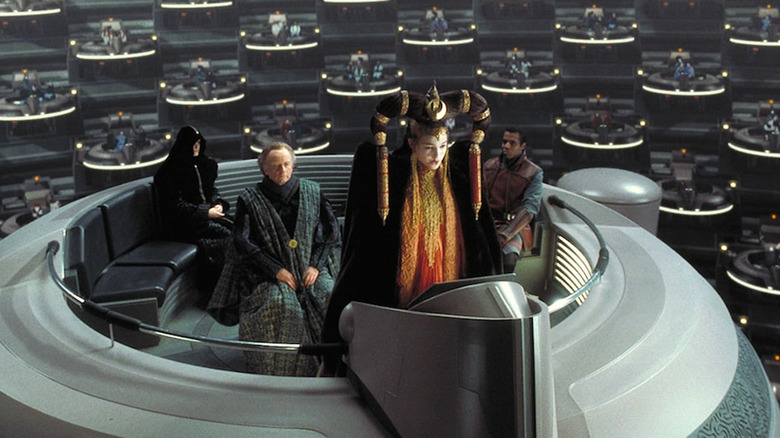George Lucas Might Not Have Written Star Wars Without Richard Nixon
The "Star Wars" saga has always worked best as a form of political commentary. In recent years, the newer films have gotten a bit of flack for that, but it's not hard to see the parallels in most "Star Wars" projects. Even before George Lucas' prequels dove headfirst into the machinations of the Galactic Senate — and drew inadvertent parallels to the War on Terror — the franchise was basically one huge condemnation of fascism. The original films have drawn a lot of comparisons to Nazi Germany for this reason, and the saga's overarching Big Bad, Emperor Palpatine, has been compared to dictators like Adolf Hitler in turn. Lucas did borrow quite a bit from the Third Reich when building out his fictional Empire, but his main inspiration for Palpatine actually hits a lot closer to home.
In "The Making of Star Wars: Return of the Jedi," J.W. Rinzler recounts an anecdote about the Emperor's origins. Shortly before the release of the 1983 film, Lucas was asked whether Palpatine had been a Jedi in the days leading up to the Empire. "No, he was a politician," Lucas answered. "Richard M. Nixon was his name. He subverted the senate and finally took over and became an imperial guy and he was really evil. But he pretended to be a really nice guy."
'No matter who you look at in history, the story is always the same'
Nixon was more than just an influence for Emperor Palpatine: His presidency on the whole — particularly his handling of the Vietnam War — served as the catalyst for George Lucas' original "Star Wars" trilogy. "That was the period where Nixon was trying to run for a [second] term," Lucas told the Chicago Tribune in 2005. "[That] got me to thinking historically about how do democracies get turned into dictatorships? Because the democracies aren't overthrown; they're given away."
Throughout the saga, the Galactic Empire has served as a cautionary tale against American imperialism. Lucas was able to expound even further on the death of democracy with the prequels, which charted the corruption of a democratic republic. By then Palpatine was not only a reminder of Nixon, but of then-President George W. Bush. So many developments in the films — from Palpatine's exploitation of public anxiety to his dissolution of the Senate — feels like a direct parallel to Bush's presidency. Ironically, Lucas plotted the story of the prequels before Bush was even elected.
"We never thought of Bush ever becoming president, or then 9/11, the Patriot Act, war, weapons of mass destruction," producer Rick McCallum told the Tribune. "Then suddenly you realize, 'Oh, my God, there's something happening that looks like we're almost prescient.'"
Looking back at the timeline for the prequels, it really does feel strangely prophetic. For Lucas though, it all boils down to the cyclical nature of history. "No matter who you look at in history, the story is always the same," Lucas said. "That's what's eerie. It was a little eerie that things have developed the way they have."

